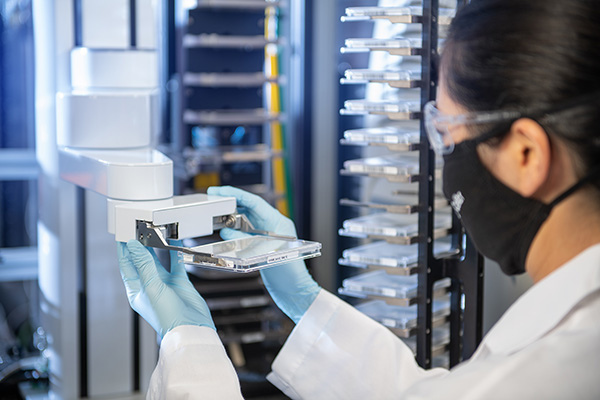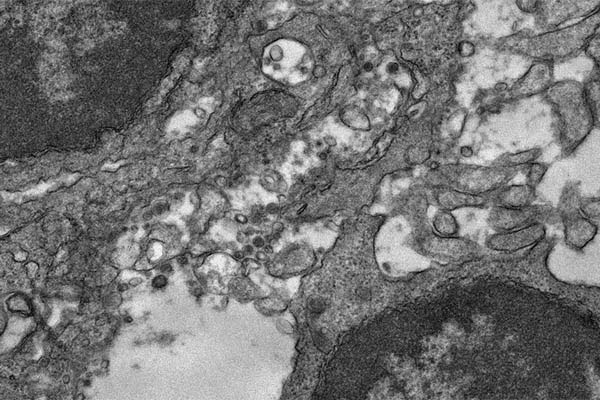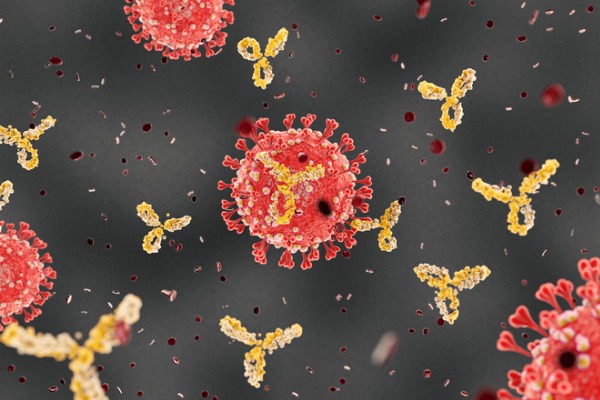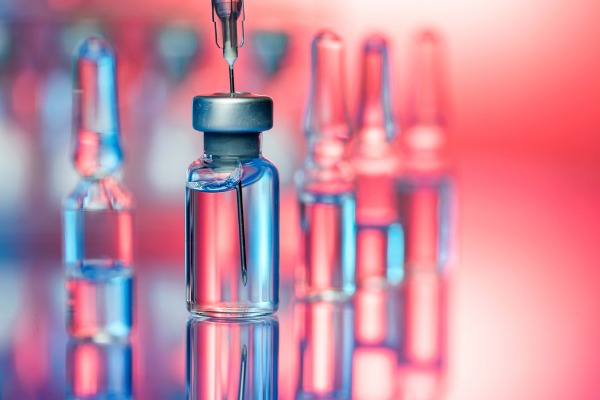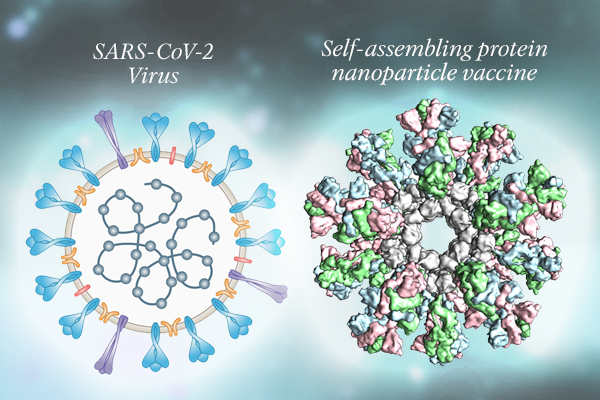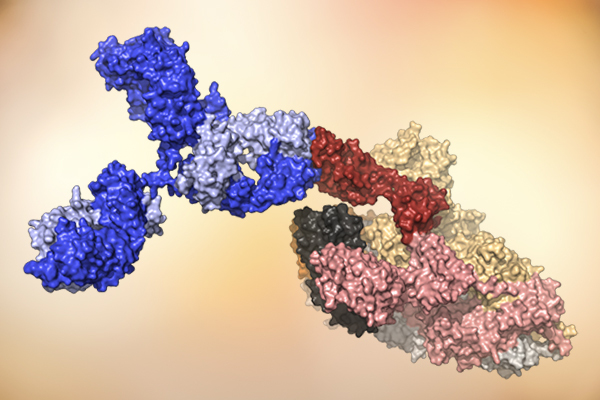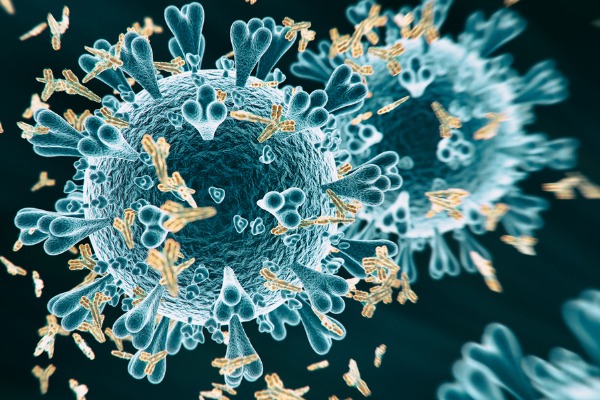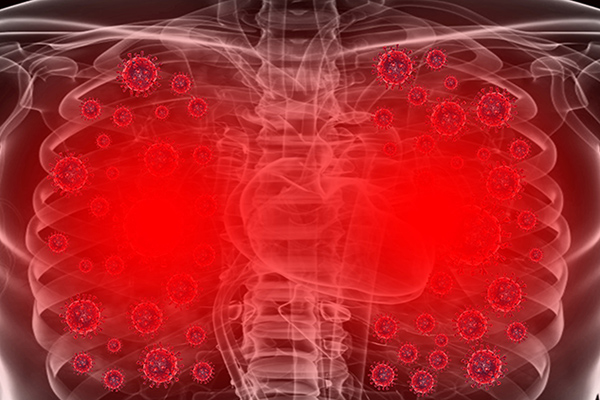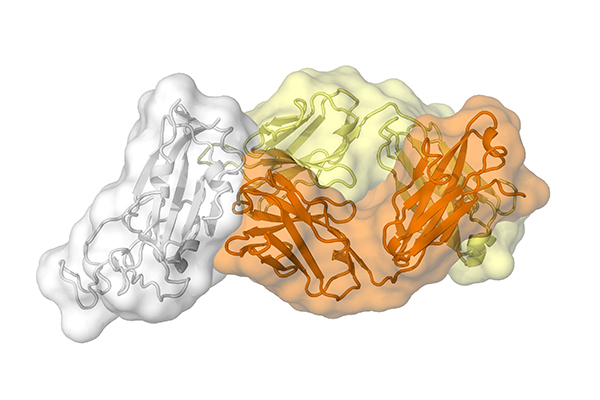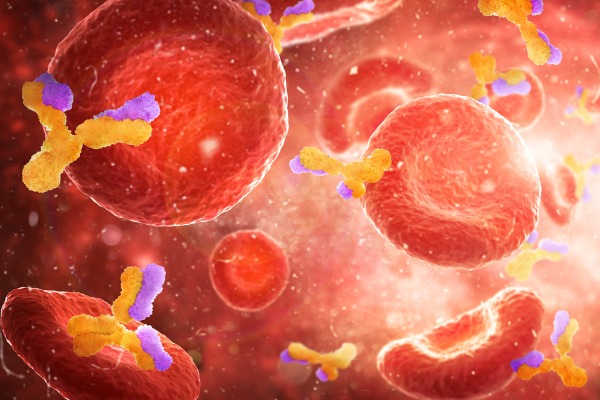Our antibody discoveries are driving tomorrow’s vaccines for COVID-19 and beyond.
Vaccines save millions of lives every year, giving the human immune system the boost it needs to protect against dangerous infectious diseases. Successful vaccines against SARS-CoV-2, the virus that causes COVID-19, will be central to ending the pandemic.
At Scripps Research, we’re working across scientific disciplines to unearth new findings about how the human immune system responds to the virus. These learnings shape innovative approaches for using antibodies to strike down the infection at first sight.
Our renowned immunologists are evaluating COVID-19 antibodies to guide the design of effective vaccines. And teams of structural and computational biologists are examining the virus and antibodies at an atomic level using some of the most advanced microscopy tools in the world—revealing clues to the coronavirus’s weak spots and evaluating experimental vaccines. Already, many key discoveries are making their way to patients.
Extensive study identifies over a dozen existing drugs as potential COVID-19 therapies
FDA-approved drugs or experimental drugs with ample health data could be rapidly tested in humans for treatment of COVID-19. Read more
Experimental COVID-19 vaccine appears to work well against variants of concern
Results from studies in mice suggest the protein-based vaccine could potentially serve as a booster shot to cover emerging COVID-19 variants.Read more
Experimental COVID-19 vaccine takes novel approach to boosting immune response
The protein-based vaccine delivers particles that mimic the shape of a whole virus; early tests in mice suggest it also may work against variants of SARS-CoV-2. Read more
Scientists urge for investment now in highly potent vaccines to prevent the next pandemic
Warning that the next fast-spreading virus may not be as accommodating as the coronavirus driving COVID-19, they call for a new approach to pandemic preparedness. Read more
Nanoparticle vaccine for COVID-19 spurs robust immune response in preclinical tests
The novel vaccine technology, developed at Scripps Research, uses virus-like particles to elicit high levels of protective antibodies. Read more
Super-potent human antibodies protect against COVID-19 in animal tests
A team led by Scripps Research has discovered antibodies in the blood of recovered COVID-19 patients that provide powerful protection against the coronavirus that causes the disease. Read more
Antibodies produced in response to one type of coronavirus don’t offer protection against the other, study suggests
Even though the coronaviruses that cause SARS and COVID-19 are closely related and infect cells the same way, they aren’t cross-protective in cell culture experiments. Read more
Clinical trial in COVID-19 patients tests anti-inflammatory drug developed 25 years ago at Scripps Research
Clinical trials are assessing whether the drug can temper the immune system’s response to coronavirus in the lungs, preventing the dangerous inflammation seen in patients with severe disease. Read more
Clues to COVID-19 coronavirus’s vulnerability emerge from an antibody against SARS
An antibody recovered from a survivor of the SARS epidemic in the early 2000s has revealed a potential vulnerability of the coronavirus at the root of COVID-19. Read more
Antibodies, Vaccines and the Current State of COVID-19
An extended conversation between Dr. Eric Topol, Director of the Scripps Research Translational Institute, and Professor Dennis Burton, Chair of the Department of Immunology and Microbiology at Scripps Research. Listen as they talk about antibody cocktail treatments, the mystery of “longhaul” COVID-19 symptoms and how close we are to developing a coronavirus vaccine.
PreSCRIPPSion Sound podcast version of the conversation
Read full transcript
Front Row Lecture Series: Designing Universal Vaccines for Influenza and Coronaviruses
As the ongoing COVID-19 pandemic edges up on the onset of flu season, the need for effective vaccines for these viruses and others is abundantly clear. In this Front Row Lecture, Ian Wilson, DPhil, chair of Scripps Research's Department of Integrative Structural and Computational Biology, discusses advances in designing and developing universal vaccines that could either treat or protect people against all strains of a virus. He focuses on progress developing universal vaccines against influenza and how research on flu has paved the way for current efforts to find a pan-coronavirus vaccine.
Soon after the COVID-19 pandemic reached the United States, a team of Scripps Research scientists began studying blood samples from patients recovering from infection by the novel coronavirus. In this virtual Front Row lecture, Dennis Burton, PhD, shared how he and his collaborators are analyzing COVID-19 survivors' blood for proteins, known as antibodies, that the immune system creates after encountering the virus. Antibodies to the new coronavirus could be used as much-needed therapeutics to COVID-19 or to help design a vaccine to protect against the disease.
Front Row Lecture Series: Addressing the Coronavirus Challenge
How do scientists create vaccines and drugs against a virus that simply didn’t exist months ago? That’s the challenge that virologist Michael Farzan, PhD, is facing head on—along with his team on the Jupiter, Florida, campus of Scripps Research. In this Front Row lecture, Farzan, a professor and co-chair of the Department of Immunology and Microbiology, shares his early findings on efforts to develop a safe and effective vaccine that triggers antibodies against the novel coronavirus.
Front Row Lecture Series: Outsmarting Emerging Pathogens in an Interconnected World
Kristian Andersen, PhD, a genomic epidemiologist, was among the first to begin tracing the origins and spread of the novel coronavirus based on public genome sequencing data. In this virtual Front Row lecture, Andersen shares unique insights on how COVID-19 emerged and he explains what has worked (and hasn’t worked) to mitigate the public health crisis. Lessons learned can help us contain the current pandemic and prepare for future outbreaks.
Coronavirus structure may hold key to treatment: Scripps Research COVID-19 updates
Andrew Ward, PhD, a professor of Integrative Structural and Computational Biology, revealed the first structure of a human coronavirus spike protein in 2017 from the HKU1 virus, and went on to do the same for SARS and MERS. He and his team are now investigating the structure of the SARS-CoV-2 spike protein and working with collaborators to isolate antibodies from patients. They also developed new imaging methods that may work as a diagnostic tool to probe blood samples from those with COVID-19.
Antibodies, biologics and the fight against coronavirus: Scripps Research COVID-19 updates
Besides vaccines and antiviral drugs, a group of medicines called biologics offer great potential in the battle against COVID-19. Serum from recovered patients can be used to protect others and also to identify useful antibodies, our immune system’s precision germ-targeting system. In Jupiter, Florida, Scripps Research molecular biologist Christoph Rader, PhD, explains.
Using the immune response to develop coronavirus treatments and vaccines: Scripps Research COVID-19 updates
Dennis Burton, PhD, and Thomas Rogers, MD, PhD, are studying the human immune response to SARS-CoV-2 infections and working to identify antibodies that may serve as the basis for vaccines or antiviral therapies. They need volunteers who have recovered from COVID-19 to help with their research. If you are interested in helping, contact Karen Westfall at kwestfall@scripps.edu.
How does the coronavirus sicken people? A virologist explains: Scripps Research COVID-19 updates
The pandemic strain of coronavirus infects cells in the lung, leading to an aggressive immune response that can be life-threatening. Virologist Hyeryun Choe, PhD, at Scripps Research, Florida answers common questions about COVID-19.
How scientists are confronting coronavirus: Scripps Research COVID-19 updates
Around the world, scientists are sharing data, sharing insights, pushing for the best possible vaccines and medications against COVID-19. Virologist Michael Farzan, PhD, describes the scale of the effort underway at Scripps Research.


